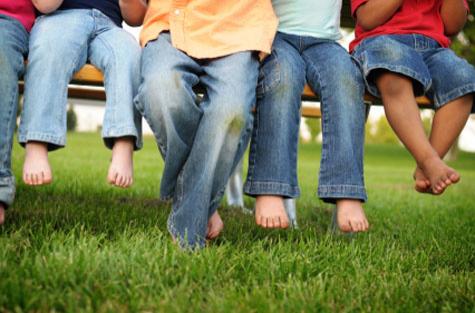She admitted she'd always kept him on a pretty short leash, but his behaviour seemed worse than what she thought typical adolescent rebellion ought to be.
So she brought Chris to my office to see if I could get through to him. Away from his mum, he opened up quickly.
He told me he was failing two classes, but couldn't bring himself to tell his parents. "I knew they would restrict me or take away my phone and I wanted to be able to talk to my friends," he told me.
Plus, he admitted, he'd never before done anything that would so disappoint his parents.
I persuaded him that it was time to face the consequences for goofing off when he should have been studying, and he agreed to bring his mother in.
Just as he feared, she threatened to take away his privileges until he straightened up. She was especially hurt and shocked that the son she felt so close to had been lying to her.
Then she pledged to meet with his teachers and convince them not to fail Chris.
I wish I could say I was surprised at her about-face, but I see this kind of parental overprotection all too often.
I steered the discussion toward why Chris needed to deal with the full consequences of his failure, not just the consequences his mother chose for him.
Decision-making can be a challenge at any age, but it should get easier as we get older. Simply put, the more difficulties you face and the more experience you get with overcoming problems, the better you get at it.
This isn't to say that adolescents don't need their parents' help. Between their lack of experience and all the hormonal and neurological changes they are going through, teens can't be expected to make smart decisions on their own.
Still, they need to learn to face age-appropriate failure - such as flunking classes because they haven't done the work.
A few years ago, Newsweek interviewed a group of successful young adults to find out what they had in common. Each one said their parents believed in the value of effort, not outcome.
These parents acted as mentors or coaches, refusing to step in to solve every problem. Instead, they allowed their son or daughter to face disappointment and consequences when appropriate.
Parental coaches are dedicated to the task of "people-building," standing close enough to witness trips and falls while encouraging continued effort, no matter the outcome. It is the parent's responsibility to use wisdom and sound judgment in discerning when to step in and when to stay out.
Healthy risk-taking is a normal, essential part of adolescent development. A recent study found that teens who learn how to take appropriate risks are even more likely, than teens who do not, to avoid alcohol and drugs.
Of course, there's nothing easy about watching your child fail.
Developing brains are wired for a certain amount of impulsive activity. Children have to feel secure in themselves and in the unconditional support of their families in order to take healthy, age-appropriate risks that might lead to failure.
Parents who base the building of their children's self-esteem on A's or trophies restrict the room and courage necessary to learn valuable life lessons from mistakes.
Parental overprotectiveness breeds insecurity and instills a heightened fear of failure. As the writer Anna Quindlen has observed: "If your mother has been micromanaging your homework since age six, it is hard to feel any pride or ownership when you do well. They can't learn from mistakes and disappointments if their childhood is engineered so there aren't any."
My wish as a mother has always been that my children's failures are never life-altering. But I also understand that there are no guarantees. I try to remind myself that the biggest letdowns in life are often wrapped with opportunity for growth and increased self-awareness.
Chris and his mother were able to begin having more honest discussions about what was going on in his life. Rather than demanding a grade change, I encouraged his mum to send Chris the message that she trusted his ability to learn from his mistakes and make better choices in the future.
Barbara Rhode is a licenced marriage and family therapist in St Petersburg, Florida, and co-author of Launching Your Child to College and Beyond.



















__small.png)










